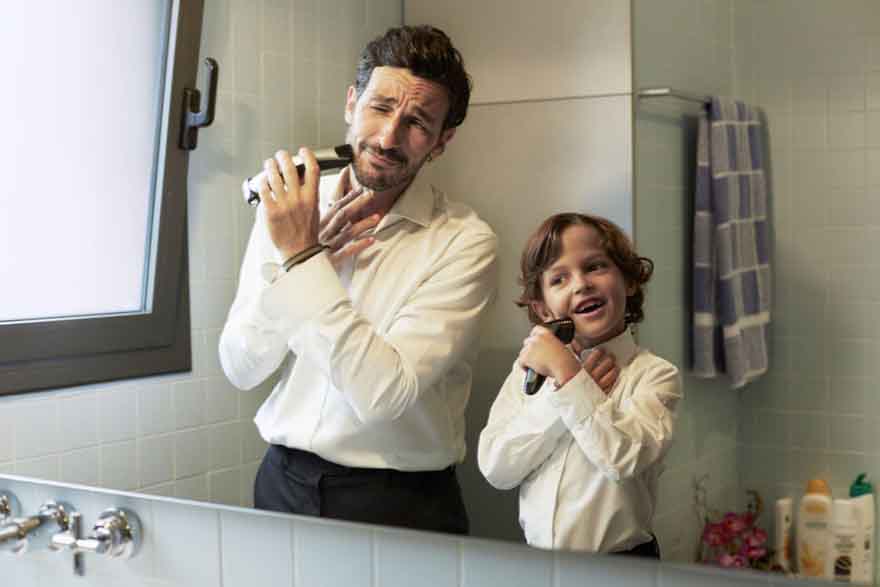One thing you should know is that acting tough and being tough are two completely different things.
When you tell a child to act tough, they will walk around with their chest puffed out, maybe put on an act, or even grow an attitude with others. Whatever it may be, telling a child to act tough forces the child to suppress their emotions. They learn to bottle things up and hide how they really feel, which is something we should never be teaching children.
When you raise a child to be mentally strong, they become resilient. They have confidence, courage, and are better able to navigate a world that sometimes isn’t all that welcoming.
By investing time into raising your child to be mentally tough, you are strengthening their resolve and their chances at a better future.
So, how do you raise a child to be mentally tough? Well I’ll give you some tips on what you can do to help your child get ready for the future.
Be a Good Role Model

This should be given, but what does being a tough role model look like? For one, you need to be able to show you’re a mentally strong person. Show patience, don’t lose your temper too quickly, be strong during emotional moments, and show that all problems can be solved with enough determination and positive self-talk. You need to express courage and instill confidence into your child, and let them know that they can be whatever they want to be.
This is easier said than done. Some of us don’t have a lot of patience, while others may have a short temper or can falter with courage when the time calls for it. Raising a mentally strong child requires you to be able to strengthen yourself as well.
Show Your Child How to Face Their Fears

Children get scared; that’s just a fact of life. Sometimes it’s very much warranted, and sometimes it can just be silly. Either way, you need to be willing to help them face their fears, no matter what it may be. If they have stage fright for an upcoming performance, allow them to practice in front of other people. If they’re afraid of roaches, show them that squashing one is no big deal. If they’re afraid of asking out a crush, make sure you give them a good pep talk. If they’re terrified of getting on a rollercoaster, try your best to convince them to go on, but don’t force them into it. The thing you need to emphasize is this: instill confidence and show that their fears aren’t as big as they may seem. Show them that the benefits of facing them are bigger than the fears themselves.
Let Them Learn From Their Mistakes

It’s in every parent’s nature to help their child when they make a mistake. Some even go so far as to clean up after them and immediately replace what was damaged. You should not be doing that. When a child makes a mistake, they should learn from it; simple as that. If they break a toy, don’t immediately go out and replace it. Instead, if they want a new toy, they need to earn it. If they weren’t watching what they were doing and fell over and dropped something, they should clean it up instead. Yes, they’re children, and all children make mistakes, but allowing them to learn the consequences of these mistakes will make them stronger people.
Teach Responsibility

Teaching responsibility can mean a lot of things. For one, your child should be responsible for their possessions. If they lose one, then you won’t replace it until they’ve earned it. Your child should have responsibilities around the house, such as washing the dishes or mopping the floor. They also need to be held responsible for their actions when it’s necessary. Unacceptable behavior should not be dismissed. Like I said before, if they make mistakes, they need to learn from them. It’s important for later in life that they know how to take care of their things and learn from their own misbehaviors.
Prioritize Problem Solving

Sometimes your child needs to learn how to help themselves, and that’s not always an easy thing to do. We have the instinct to help our children with anything and everything, but they need to know how to resolve their own issues. If your child comes to you with an issue, don’t offer them a solution outright. Instead, help them through the steps on how to resolve it. If they’re having problems with a friend, let them settle it themselves. If they’re having difficulty with a sibling, try to guide them to a solution. You can give suggestions, but don’t outright solve it unless it’s a serious issue that must be addressed.






